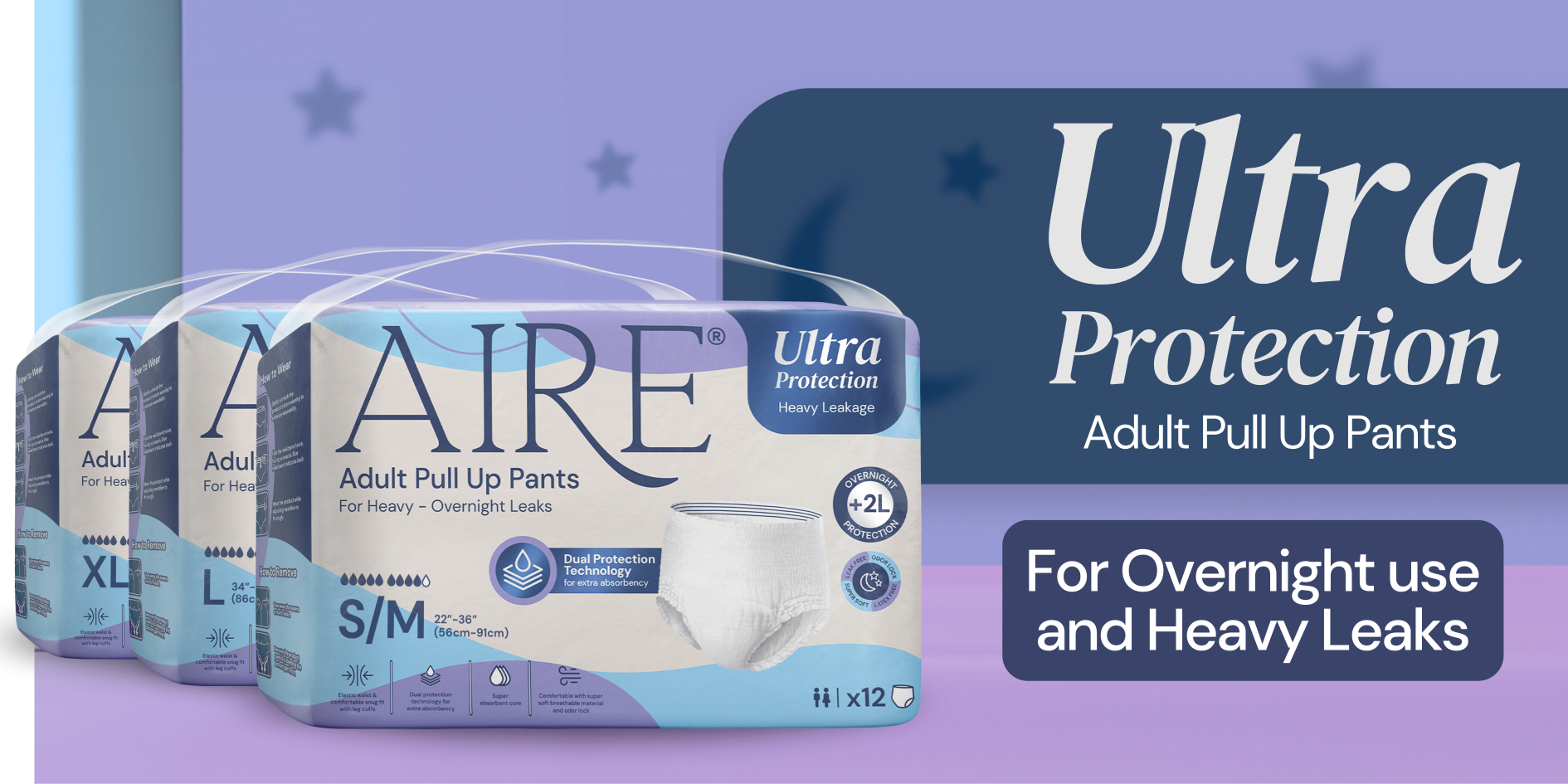Understanding Nocturia: Causes, Symptoms, and Treatments
Nocturia, also known as night time urination, occurs specifically in the night where you wake up more than once to use the bathroom. While it might seem like a minor inconvenience, the consistent disruptions will cause a negative impact on the quality of sleep which negatively impacts a person’s day to day life. In this article, we will delve into the causes, symptoms, and treatment options for nocturia, offering a comprehensive understanding of this prevalent condition while offering tips so that you may regain control over your life.
Nocturia is clinically defined as the need to wake up at night to urinate, not waking up and then deciding to urinate. It is considered a symptom rather than a disease and is often indicative of an underlying condition. While often a condition found in older adults, nocturia affects everyone with over 50% of adults aged 50 and above experiencing it and about 1 in 3 adults over 30 experiencing it, with a higher chance of experiencing it as you age. However, though prevalent, there are still many ways to counter this condition.
There are many causes of Nocturia like lifestyle changes, medical conditions and physiological changes.
Lifestyle changes:
Fluid Intake:
Consuming large amounts of fluids, particularly caffeine and alcohol, before bedtime can lead to an overproduction of urine at night. This is because caffeine, which acts as a diuretic, increases urine production, and alcohol can interfere with the body's ability to produce antidiuretic hormone, which helps retain fluid in the body. So, if you find yourself drinking many glasses of caffeine or alcohol before bed and experience this condition, ensure that you consume less to lessen its effects.
Medication:
Certain medications, such as diuretics (commonly used to treat high blood pressure), are designed to expel excess fluid from the body, potentially leading to nocturia. Other medications that can cause nocturia include lithium, demeclocycline, and certain antipsychotics. When taking prescribed medication, always remember to consult your doctor on possible side effects and ways of which you can treat them.
Medical Conditions:
Bladder issues:
Urinary Tract Infections (UTIs) and bladder disorders like Overactive Bladder (OaB) and interstitial cystitis - Bladder Pain Syndrome can cause increased frequency and urgency of urination, including at night. UTIs irritate the bladder, reducing its capacity to hold urine and causing more frequent visits to the toilet. An OaB causes sudden, involuntary contractions of the bladder muscles and interstitial cystitis is a chronic condition causing bladder pressure and pain. To tackle these conditions, always consult a medical professional for advice and treatments.
Prostate Issues:
In men, an enlarged prostate (benign prostatic hyperplasia) can obstruct the bladder and lead to frequent urination. This condition becomes more common with age and can significantly impact nocturnal urination patterns.
Chronic Conditions:
Diseases such as diabetes and heart failure can alter urine production and fluid balance, contributing to nocturia. In diabetes, high blood sugar levels can lead to increased urine production. Heart failure can cause fluid to accumulate in the legs during the day, which is then mobilized and processed by the kidneys at night.
Physiological Changes:
Aging:
As people age, bladder capacity may reduce, increasing the frequency of nocturia. Additionally, older adults produce less antidiuretic hormone at night, leading to increased urine production.
Hormonal Changes:
The decline in antidiuretic hormone production with age can lead to increased urine production at night. This hormone helps the kidneys manage the balance of fluids in the body, and lower levels can result in higher urine volumes.
Impact on Quality of Life
Nocturia can significantly affect a person's quality of life. Repeated nighttime awakenings disrupt the sleep cycle, reducing the amount of restorative deep sleep and leading to daytime drowsiness. This can impair concentration, productivity, and overall mood. In severe cases, nocturia has been associated with an increased risk of falls and fractures, particularly in older adults who may be unsteady when getting up frequently at night. Furthermore, chronic sleep deprivation from nocturia can lead to long-term health issues such as hypertension, obesity, and depression.
Lifestyle Changes:
Fluid Management: Limiting fluid intake in the evening, especially caffeine and alcohol, can reduce nighttime urine production. It is also helpful to distribute fluid intake evenly throughout the day and avoid drinking large amounts before bedtime.
Dietary Adjustments: Reducing the intake of foods and drinks that can irritate the bladder, such as spicy foods, citrus, and artificial sweeteners, may help. Eating a balanced diet and avoiding excessive salt can also reduce fluid retention.
Sleep Hygiene: Improving sleep habits, such as maintaining a regular sleep schedule, creating a restful sleep environment, and avoiding electronic screens before bed, can help manage nocturia. Techniques like using white noise machines or blackout curtains can also improve sleep quality.
Medical Interventions:
Medications:
Depending on the cause, medications such as anticholinergics for overactive bladder, desmopressin to reduce urine production, and alpha-blockers for prostate enlargement may be prescribed. These medications help reduce symptoms by targeting specific underlying issues. For any medication, it is imperative to consult a healthcare provider first.
Treatment of Underlying Conditions:
Managing chronic conditions like diabetes, heart failure, and UTIs can help reduce nocturia symptoms. For example, controlling blood sugar levels in diabetes or using compression stockings to manage edema in heart failure can significantly impact nocturnal urination.
Behavioral Therapies:
Techniques to increase bladder capacity and control urgency can be beneficial. This may involve scheduled voiding and gradually increasing the time between bathroom visits to train the bladder.
Pelvic Floor Exercises:
Strengthening the pelvic floor muscles through exercises like Kegels can improve bladder control and reduce symptoms of nocturia. These exercises help support the bladder and improve urinary function.
Conclusion
Nocturia is a common condition that most adults will experience in their lives. Luckily, there are many resources and treatments available to help you through it. With understanding what causes nocturia and how to treat it, nocturia will no longer be the boogeyman in the night, waking you up to disturb your rest and you will be able to regain control of your life again!
References
- https://www.urologyhealth.org/urology-a-z/n/nocturia
- https://www.sleepfoundation.org/physical-health/nocturia-or-frequent-unrination-night
- https://my.clevelandclinic.org/health/diseases/14510-nocturia
- https://www.ncbi.nlm.nih.gov/pmc/articles/PMC3602727/
- https://www.bladderandbowel.org/bladder/bladder-treatments/nocturia-treatments/



